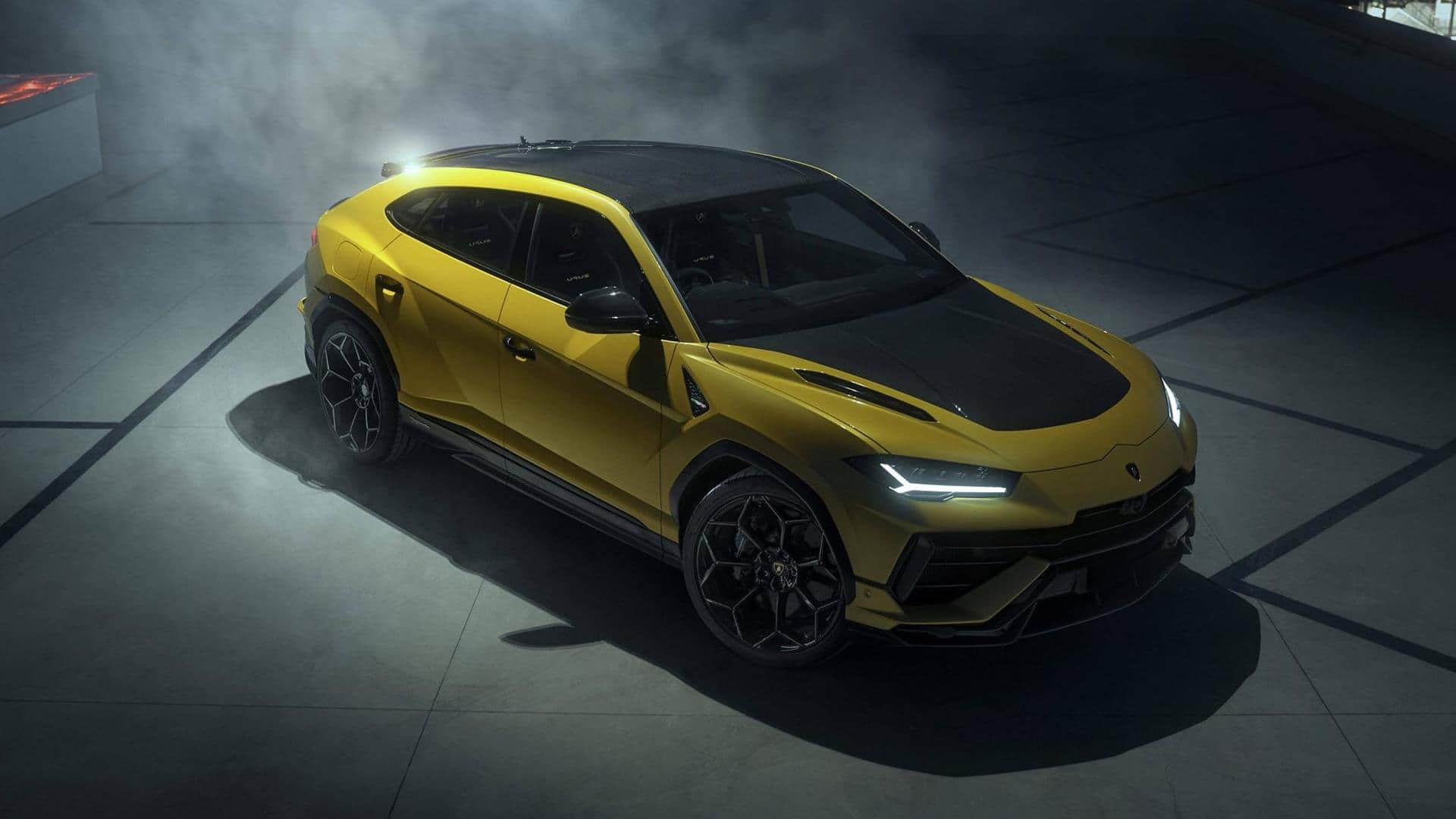
Lamborghini to unveil its first all-electric supercar in 2028
What's the story
German automaker Lamborghini will introduce its first fully-electric car in 2028, CEO Stephan Winkleman has confirmed to Auto Express in an interview.
The four-wheeler is likely to be built on Volkswagen's Scalable Systems Platform (SSP) and it will not replace any current models in the company's line-up.
The luxury brand will take a stand on its fuel-guzzling cars in 2025.
Context
Why does this story matter?
The entire automobile industry is jumping on the sustainable mobility bandwagon and Lamborghini is no exception.
This will be the last year when a solely internal combustion engine (ICE)-backed Lamborghini car will hit the market.
The company has decided to spend €1.8 billion to fulfill its electrification strategy. Nonetheless, waiting till 2028 to introduce an EV seems like a long wait.
Features
What will the upcoming EV be like?
Winkleman described the company's upcoming EV as a "2+2, two-door car with more ground clearance." It will be meant for daily usage.
Similar to the Urus SUV, Lamborghini is expected to collaborate with Volkswagen to build it.
It might sit on VW's Scalable Systems Platform (SSP), which is currently under development. However, we know nothing about the four-wheeler's design and features as of now.
Plans
Introduction of EVs align with the company's goals
Chief technical officer, Rouven Mohr claimed that from the technology point of view, it is the right time to introduce Lamborghini EVs.
The brand will take several factors into consideration, including battery integration, and carbon fiber function integration.
The added battery weight will be compensated by improving driving dynamics, control, and drift ability. A 360-degree approach combining all active systems is also a possibility.
Safe
Hybrids are not going anywhere
As per Winkleman, Lamborghini will not pull the plug on its hybrid models anytime soon and synthetic fuels (made using carbon-neutral processes) will play a part in "keeping [them] alive."
To this end, the brand will introduce a hybrid replacement for the Aventador in early 2023, a plug-in-hybrid successor to the Huracan in late 2024, and a plug-in-hybrid Urus in the same year.